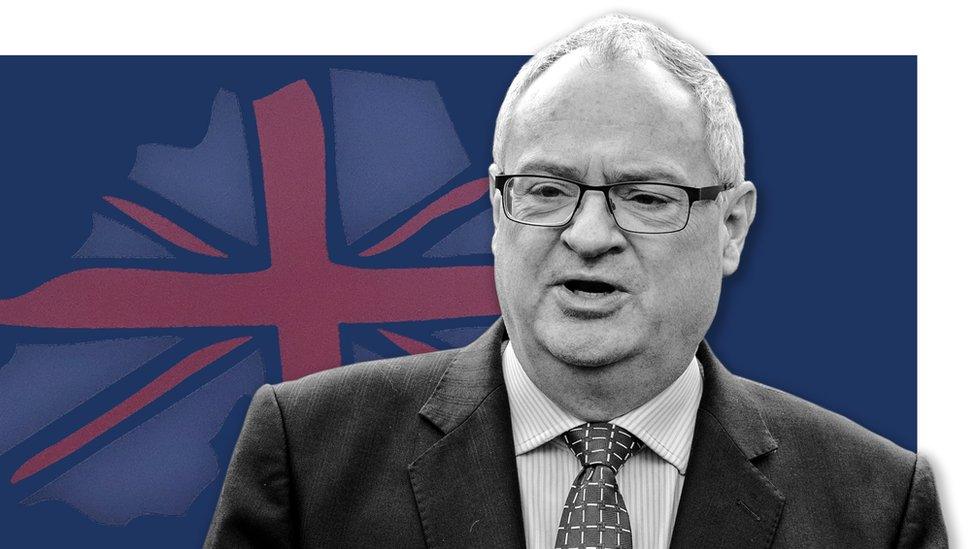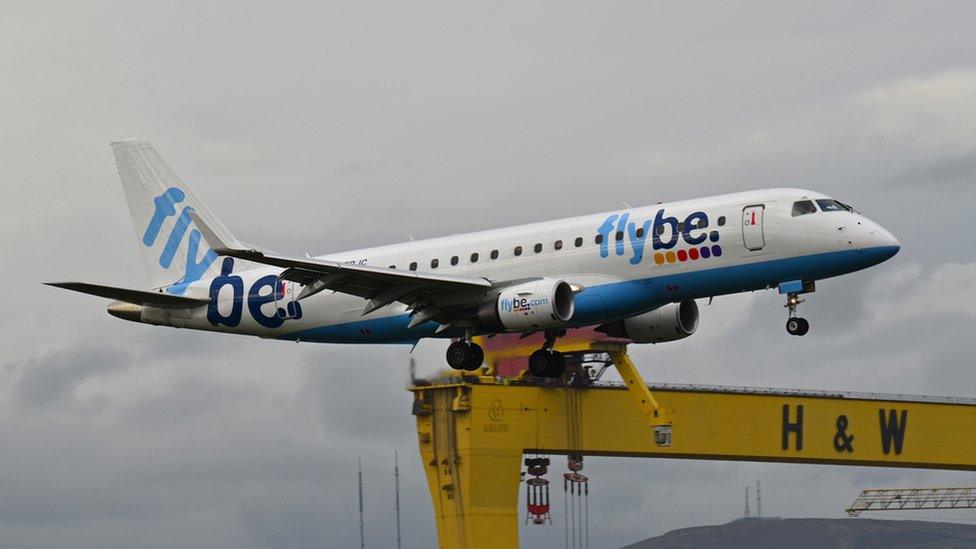Election 2019: UUP manifesto at a glance
- Published

The Ulster Unionist Party (UUP) has launched its manifesto ahead of the 12 December general election.
The full document, which can be viewed here, external, sets out the policies the party would support becoming law if its MPs are returned to Westminster.
Some areas, such as education and health, are devolved to the Northern Ireland Assembly, which has been suspended since January 2017.
This means the Stormont executive would need to be restored, with assembly members supporting the particular policy, before it could be introduced.
The manifesto also sets out how the UUP wants to see devolved government restored.
The main pledges from the party's 2019 manifesto are:
Maintain the union, which will take precedence over securing Brexit at any cost
Call for direct rule to be implemented in January, if Stormont has not been restored by then
Greater transparency around ministers and special advisers if it is alleged they have broken the code of conduct
Independent monitoring of delivery of the Programme for Government
Lower the voting age to 16 by 2021
Brexit
Its official stance during the EU referendum in 2016 was to back Remain but a number of high-profile members, including then Fermanagh and South Tyrone MP Tom Elliott, supported Leave.
Since then, the party has said it respects the result of the vote and wants to see Brexit delivered - but it does not support the current withdrawal agreement.
New party leader Steve Aiken then said he would rather support the UK remaining in the EU than sign up to Boris Johnson's deal and the party reaffirms this in the manifesto.
Its other manifesto pledges on Brexit include:
Strengthening NI's place in the UK and ensuring the best Brexit deal possible is secured
Ensure Northern Ireland is not left a place apart in any final Brexit deal and oppose trade barriers East-West or North-South
Offer financial guarantees to those losing EU funding


Under the current political circumstances the Ulster Unionist Party looks at face value to be a Remain party - but that is a statement that needs some clarification.
Under the new leader Steve Aiken, the UUP finds itself trying to present a nuanced Brexit position. It is a policy that has changed as the months have rolled on since the 2016 EU referendum.
The party originally backed a Remain position in 2016 arguing that Northern Ireland's place was best served being part of the EU.
In the aftermath of the referendum result the party argued that the wishes of those who voted Leave had to be respected.
The party refused to back calls for another referendum and insisted that Northern Ireland should leave the EU on the same basis as the rest of the UK .
However, the party is against Boris Johnson's plan and argues that it threatens the union of the UK and would create a border down the Irish Sea and make Northern Ireland ''a place apart ".
So the party has now stated that if the Boris Johnson plan is presented as an option the UUP would not back it - preferring to remain in the EU.
There are a range of views in the UUP on Brexit . Some activists describe themselves as " ardent remainers " others have called themselves "soft leavers ".
It is clear Brexit has created a coalition of thoughts and ideas but there is agreement that the union of the UK must be paramount.
It means the party is firmly in the Remain camp until the Boris Johnson deal becomes acceptable.

Devolution and the Stormont deadlock
The UUP has been calling for some time for Westminster to implement direct rule - ie for the government to install ministers in London to take decisions for Northern Ireland- in the absence of a power-sharing executive at Stormont.
It argues there are funding crises in health and education that need immediate action, and would rather a minister in London take decisions than allow the current situation to continue, where civil servants in Northern Ireland are limited in what they can do.
Fix Stormont and restore public confidence in local institutions
If devolution cannot be restored by mid-January, the British government should introduce direct rule immediately
Examine in detail how the Act of Union can be updated in order to consolidate and stabilise the relationship between Westminster and the devolved administrations in other parts of the UK
If ministers and special advisers in a future devolved government are alleged to have broken the code of conduct they must face investigation
Health
A significant section of the Ulster Unionist manifesto looks at health care in Northern Ireland.
The issue has risen up the agenda in recent days following industrial action by nurses and other staff over pay and staffing levels.
The UUP says a health care emergency should be immediately declared. Other policies on health include:
The next government should immediately intervene and announce it is initiating special measures
Health functions to be formally transferred back to Westminster and an MP appointed as Northern Ireland health minister
Ring-fence funding for health from the Barnett consequential, the formula which dictates the level of public spending in Northern Ireland, Scotland and Wales
Consequentials for pay awards must also be ring-fenced to fund similar awards for health workers in Northern Ireland
Legacy
The UUP has strongly opposed plans for the Historical Investigations Unit since it first emerged from the Stormont House Agreement in 2014.
The unit would examine unsolved murders carried out during the Troubles, but the UUP has criticised it as a "parallel police force" which would unfairly target former security service personnel rather than members of paramilitary groups.
Other UUP legacy proposals include:
Addressing the legacy of the past in a proportionate manner, while also meeting the immediate needs of victims and survivors
Support the Asset Freezing (Compensation) Bill to use some of the frozen Libyan assets in London to compensate IRA victims of Libyan-supplied weaponry
Economy
The party sits on the soft right of the political spectrum and broadly backs right-of-centre economic policies, although not exclusively so.
It has previously called for changes to the VAT rate for the hospitality sector and it uses this manifesto to call for it to be cut to 9%.
Like many other parties in Northern Ireland it has argued for a long time for air passenger duty to be either reduced or abolished.
Its economic policies include:
Support a new concessionary VAT rate or 5% for the repair, maintenance and improvement of existing homes
Support a new concessionary VAT rate of 9% for the hospitality sector
Abolish Air Passenger Duty on flights from Northern Ireland

The UUP says abolishing Air Passenger Duty would help Belfast's airports compete with Dublin
Environment and climate
With the environment and climate change rising up the agenda for many voters, the UUP has dedicated a sizable portion of its manifesto to the issue.
The party has some pretty bold suggestions, including setting up a new Environmental Protection Agency.
Support a new Environmental Protection Act which would have Northern Ireland-specific legal targets for net zero emissions by 2035
Create a new Environmental Protection Agency
Introduce a statutory duty on tackling invasive species and halting the rate at which local species and habitats are declining
Plant one million new trees by 2025
Other notable policies
An independent mental health champion should be appointed
Vote to restore free TV licences for all over-75s
Retain the triple lock protection for pensions
Improve childcare provision across Northern Ireland
Seek additional funds from the British government to hire an extra 734 full-time police officers
Promote a single state education system where children of all faiths and none are educated together

CONFUSED? A simple election guide
POLICY GUIDE: Who should I vote for?, external
REGISTER: What you need to do to vote

What are the parties promising you?
Here's a guide to where the the other main parties in Northern Ireland stand on key issues in this election campaign.